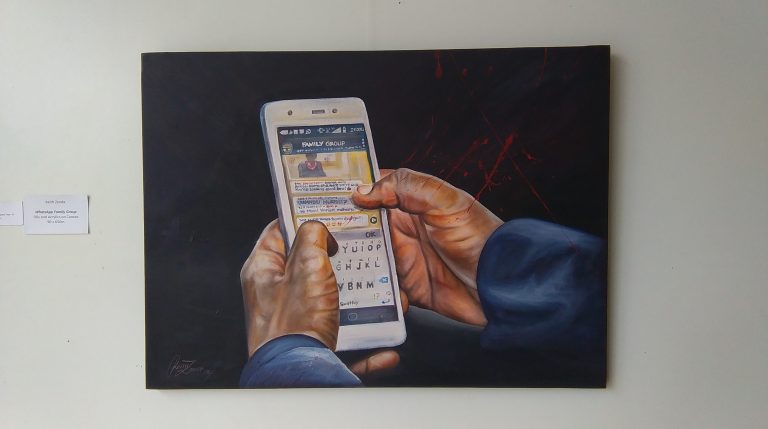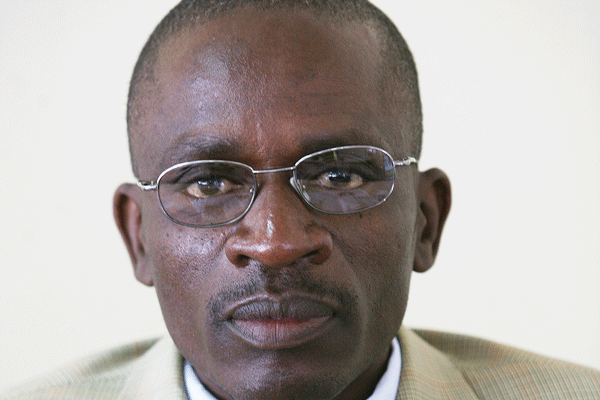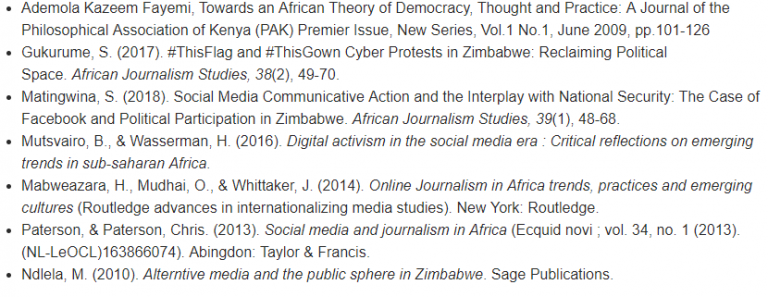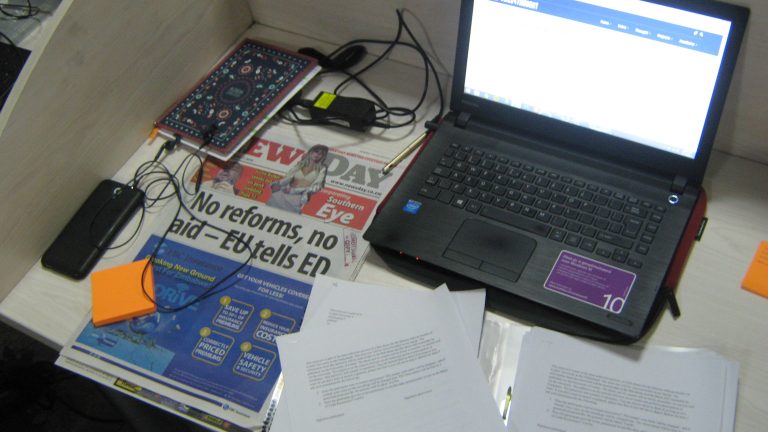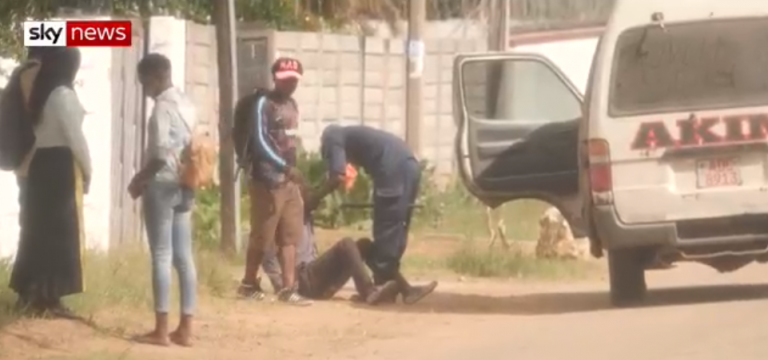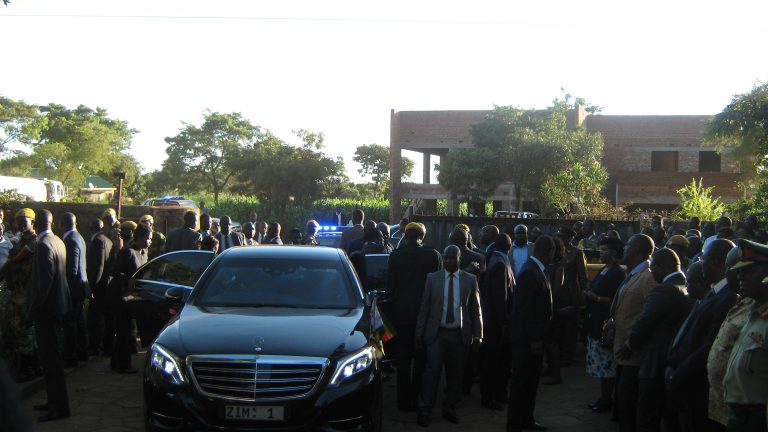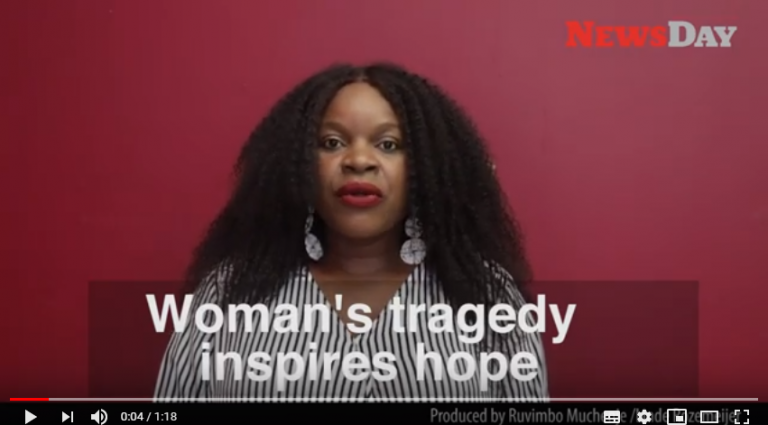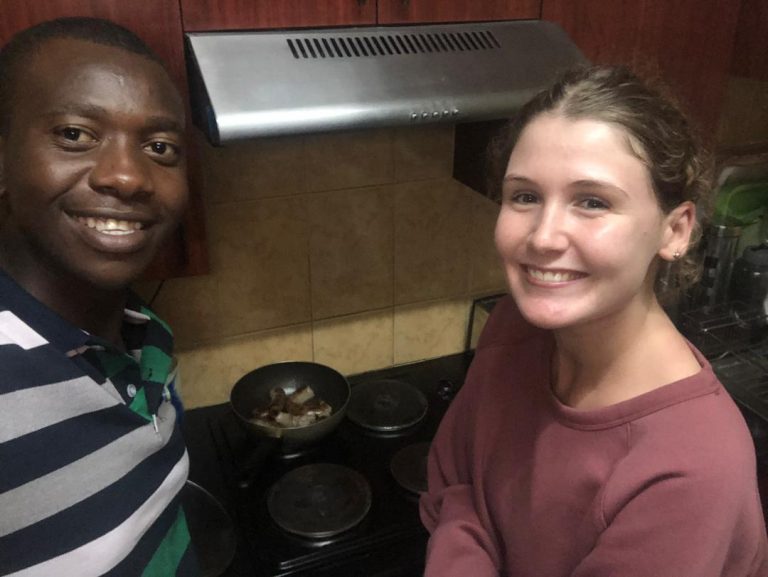Academic research on the influence of Social Networking Sites - like Whatsapp and Facebook? - on democratization-processes in autocratic regimes in Africa is often centered on the bottom-up, citizen-driven possibilities of social media, arguing that these factors enforce processes of mobilization and free information-access, ultimately resulting in a form of democratization. Drawing conclusions from the Arab Spring, the prediction was made that Zimbabwe could follow the same course of action. So far however, decisive democratic change there has not yet been observed.
In January 2019 protest eruptud in Zimbambwe after an increase of fuel prices, which led to the shut down of the internet by the govenrment. I used this as a case study for the research carried out for my Masters in African Studies, within the context of an 3 month? internship at the newsagency Newsday in Zimbabwe in 2019. In this process I wrote a live blog about the protest for Newsday and started blogging at this Wordpress website to built a digital archive for my research.
It was the first week of my internship at NewsDay-papers in Harare, Zimbabwe, as I stood on the doorstep of the office and heard gunshots and teargas being fired. Just two days before protests had broken out, triggered by the increase of fuel-prices – subsequently making them the highest in the world. Riding to work previous days I had seen the fuel-queues, hearing stories of people being in line for 3 straight days - waiting for fuel that would not come because of corruption (owners of fuel stations would keep a large part of the fuel themselves or selling it on the black market. [Blog post 'Gunshots in Harare']
[i have inserted an audiovisual about the january protests that grabs attention, maybe there is one that also connects to the internet shutdown/ perhaps linked to an article or video from newsday about the protests, or some of the work you did for them - did you report and write for them?]
Factors preventing democratization via social media
My thesis argues against the idea of social media creating or enabling democratizing processes in the socio-political arena of Zimbabwe. Using the January-protests as a case study, four factors preventing democratization via social media were identified.
Digital divide
First, the study has shown that issues concerning access to internet, digital illiteracy and data-affordability have created a digital divide. perhaps say something more about this/take a quote from an interviewee/ your blog/visual material?
The particulars of Zimbabwean political society
Secondly, the historical context of the country, the current political society and the regime’s successful counter-adaptation of social media also blocked change. perhaps say something more about this/take a quote from an interviewee/ your blog/visual materialfrom your thesis?
The online/offline-aspect in Zimbabwean socio-politics
Thirdly, a disconnect between online and offline worlds, an unwillingness to participate in offline protests and an increasingly un-democratic virtual space due to arrests, state interference and restrictive media-laws made social media failing to inspire real change in Zimbabwe’s political system.perhaps say something more about this/take a quote from an interviewee/ your blog/visual material?
The Zimbabwean media-landscape.
Lastly, the study noted negative effects of the current state of the Zimbabwean media-landscape. Social media create ethical challenges and promotes un-verified news. Propaganda and a polarity between public press and private press foster an information-void. With social media failing to bridge this void, the formation of a strong Zimbabwean civil society and the potential of democratization are jeopardized. perhaps say something more about this/take a quote from an interviewee/ your blog/visual material?
On Monday the 20th I was allowed back to the NewsDay offices again. Driving to work, life seemed to return back to normal; the streets were no longer empty, shops were open and people were picking up their daily routines. The fuel queues were gone, as prices had gone up so much Zimbabweans could not afford to fill up their cars anymore. But although things seemed ‘normal’ again, little information had been coming through about the political and social events from the days before (mostly because of the internet-shutdown). [Blog post XXXX add link]
Social media as a weapon
politics in Europe and Africa are totally different. Politics there are to do with personalities and so on. Being the head of the daily independent newspaper of the country, the largest for that matter, means that my life is always at danger. I have received threats on yeah, so so so the best way possible for me is to then say that you don’t take any side. So so so how do we do that? I have maintained a balance, a middle of the road approach, which I find very interesting, it is very difficult to maintain, but when you take that middle of the road approach, you cannot be accused of supporting whichever political party in the country. [Blog post 'Interview with']
Enlarging space for democratization?
However, a few positive conclusions can be drawn also. The first concerns the effects of social media on the concept of ‘space’ under Zimbabweans, or better said; the increased lack of it. This in itself is not positive, yet social media in Zimbabwe does create ways of connecting with and learning of other systems and practices over the globe. Zimbabweans are thus able to compare their socio-political system to that of others and by doing so, learn about the ‘potential of space’. They are forced to acknowledge that they themselves cannot use this space and that this space is being taken away from them. Consciously or un-consciously, they have become aware of this ‘suppression’. It is not so much the process of forming democratic online and offline space, as it is the awareness of the absence of this space that may create more political agency in Zimbabwe.
Secondly, although I have concluded that democratization via social media has not happened in Zimbabwe currently – I acknowledge that there is a ‘potential for democratization’. This potential can possibly be reached if the four factors discussed in this research change. However, this is not likely to happen easily; democratizing processes in Zimbabwe’s current situation still seem far away.
Lastly, issue’s concerning social media and autocratic regimes in the bigger context of Africa – and other parts of the globe- must be discussed. The tendency of shutting down social media in authoritarian systems has been happening more frequently over the past year. This is worrisome, as - in the era of continuous globalization and the importance of implementing SDG’s - basic principles of freedom must be safeguarded in order to reach global sustainable development. It is therefore necessary to follow these developments closely.
VISUAL about this part? (i also like the photo of the artwork with the mobile phone, does that connect to this?)
Reflections
In the course Researching Africa in the 21st Century we were taught on how the digital extends as a new field of research in African Studies and how one could apply new methodologies when taking the digital dimension into account. I focussed on social media platforms and set up in online discussions (see blog post 'Inquiry' ). This website linked to the course was useful to me, especially in relation to the ways of storing data during my internship in Zimbabwe. The course put the emphazis on the digital, and this brought me to storing my data online - in an online archive on wordpress. In one of my latest blogs [link], I wrote:
"When I started using WordPress at the beginning of my internship, my intent was just to showcase some of the items I had been working on at NewsDay. But I soon came to the conclusion that the site was very useful in creating my own archive. It would keep my items in one place and would make it easier to organize and access my data when I will start my thesis-writing. The WordPress-page will also function as part of my final product. It will be a virtual gallery, showing my reflective pieces and products from my internship in Harare."
Contact: linde.rozemeijer94@gmail.com / LinkedIn profile
Link to thesis (google doc is not the final version. link to leiden repository, but why is it under embargo?,?)
Disclaimer: Please note that this thesis and its outcomes are dated in June 2019. Its findings may differ from the current situation in Zimbabwe.



